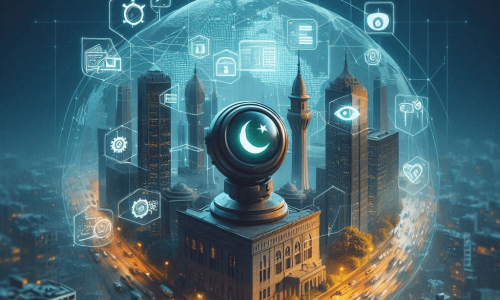Half a month prior, a LinkedIn client shared a video about a man in Lahore whose CNIC had been utilized to post bail for various individuals in isolated cases. The man let a Vlogger know that he had gone to a xerox shop to get his CNIC copied. In a little while, he found that his ID was being utilized by different people. ” He stated, “I have moved court as well and have been tracing where my ID has been used for a year.”
Cases like these are normal in Pakistan. On occasion, you receive marketing communications from companies from which you have never made a purchase; different times, you get calls from hoodlums professing to be bank workers, attempting to trick you by compromising you with your bank subtleties, which they some way or another approach.
A whole website lets people enter a phone number and see someone’s CNIC information. The website was reportedly discovered by Dr. Umar Saif, the interim minister for information technology and telecom at the time. Although it was blocked in Pakistan, a virtual private network (VPN) can still be used to access it. Such is the reaction of a country whose IT Priest continually legitimizes backward regulation and strategies with contentions about “digital assaults” and web security, while billions are spent on web checking and hindering components.
Where’s the law?
On occasion, even the most innocuous tweet you post will be accounted for by the Pakistan Telecom Authority (PTA), and you’ll get a notice from X. Nonetheless, the specialists appear to neither have the opportunity nor interest in moving toward Facebook or finding hoodlums who transparently sell Pakistan’s Nadra and SIM information in broad daylight gatherings and pages, many utilizing their genuine profiles.
Much really upsetting that in spite of boundless information burglary and shakedown because of information abuse or change, Pakistan doesn’t have an information security regulation. Farhatullah Babar, a previous PPP representative, told this creator in 2019 that when Peca was being passed, they had requested that the PML-N enact a regulation on information security simultaneously. ” Without a data protection bill, how can a cybercrime law be passed? he had said. ” The PML-N promised that the bill would be passed shortly after Peca.
The party did not. A data protection bill is essential, not only for the framework of the law but also for the protection of an individual’s data. It requires law enforcement to take responsibility for preventing the leak or manipulation of our private information.
Multiple drafts of the information security bill have been arranged throughout the long term. On the IT ministry’s website in 2016, a draft included private businesses but excluded government agencies. Quick forward to 2022, under the PTI government, the bureau endorsed another draft — as yet barring government organizations and had dubious definitions in regards to information holders, processors, and their obligations, specialists noted.
Given the avalanche of other overly broad cyber laws, the lack of tangible progress on the data protection bill, an essential component of cyber legislation, has raised many eyebrows. Even though departments like Nadra hold massive troves of citizen data that have been leaked online multiple times, many have questioned why these drafts repeatedly exclude government entities.
Their skepticism was reinforced when the Pakistan Democratic Movement (PDM) government’s 2023 draft filled this void by cleverly including data localization clauses. It turns out that Pakistan’s constant delays were caused by the state’s desire for unrestricted access to the data of everyone who lives in Pakistan and Pakistanis living abroad. The online entertainment rules, laid out in 2020, likewise called for information localisation. It appeared that protecting data was more important than gaining access to it.
Rights activists have expressed concern over the ambiguity of these drafts and rules, which mirror the ambiguity of other cyber laws. They provide little information regarding the implementation process. Strikingly, the last two drafts incorporate statements requiring information holders and processors to surrender data to the public authority upon demand — without framing any conventional cycle, for example, a warrant or court request.
“Telecom organizations working in Pakistan are running a mass reconnaissance framework which “empowers capture of information and records of telecom clients” with next to no administrative component or legitimate systems, on the sets of the PTA, a July 2 Sunrise report expressed.
According to the judgment, which was written by Justice Babar Sattar, the court was told that telecom companies had been asked to “finance, import, and install” the Lawful Intercept Management System (LIMS) at a designated place (referred to as a ‘surveillance centre’) for the use of designated agencies. The details came to the forefront following a petition on surveillance of citizens, after several audio clips and private conversations of political figures were shared on X. The court, on the other hand, was not informed of the agencies’ identities.
It isn’t simply lawmakers that our state pays attention to through advanced implies. The principal genuine discussion over security and information security ignited in 2012 when the PTA requested telecom organizations to end late-night call bundles and supposedly utilized records of a confidential telephone discussion between two individuals as the defense for its choice in court.
The PTA confronted serious reaction as specialists scrutinized its power to catch private calls between customary residents, not to mention use them as proof in court.
The PML-N is increasingly relying on arguments borrowed from rights groups and experts, despite the fact that no political party has introduced legislation that is in line with international best practices. The fundamental digital rights and safety of Pakistani citizens have been prioritized over surveillance in recent legislation, particularly since Peca.
While customary individuals all over the planet are bound to experience tricks and phishing endeavors than modern hacking, these issues can be really tended to through authoritative, policing, and legal changes. But since Pakistan believes free access should keep an eye on its inhabitants, it won’t actually pass a bill that guarantees security against tricks and wrongdoings.



